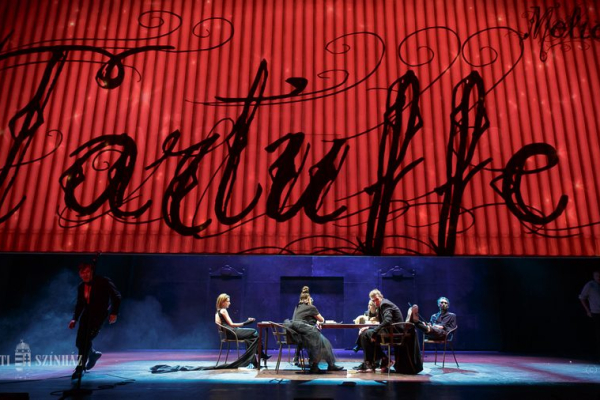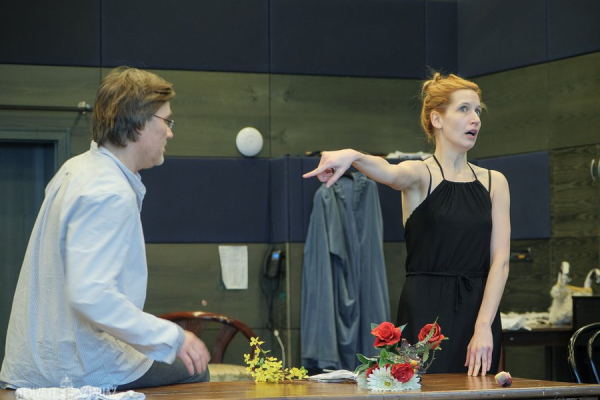
TARTUFFE 16
“There’s a vast difference, so it seems to me, Between true piety and hypocrisy”
Tartuffe, a profoundly religious figure, is gaining influence in the wealthy home of the Orgons, and is about to cheat Orgon out of his fortune and get his daughter's hand in the process. Soon everyone sees through Tartuffe's tricks – except Orgon. The family come up with a plan to catch the fraudster out.
A simple comedy plot, implemented ingenuously by none other than the brilliant genius of the history of drama: Molière.
In the original title, Molière thought it important to attach the qualifier "l'imposteur" to the name: Tartuffe or the Hypocrite, a.k.a. sanctimonious, eye-rolling, two-faced, pretender, phoney, lip-server, Pharisee. The fact that a language offers so many words for a concept suggests that it keeps people preoccupied. The best indicator of the popularity of this play is that by now, "a real tartuffe" can be added to the list of synonyms.
The character became synonymous with the trait that Molière pilloried in his piece, so much so that, although the play was presented in Versailles in 1664, influential courtiers convinced Louis XIV to ban it. It would not be re-authorised until 1669. A ban, however, was a great way to advertise even back then, and the audience flocked to the premiere on 5th February. The fact that the enthusiasm would not subsequently fade shows the timeliness and validity of the play. With countless stage interpretations today, every director will find their own Tartuffe, depending on the message they want to convey to the world, and on the social anomaly they focus on. In any case, those who assumed that the play was an attack on faith and banned / embraced it depending on their worldview, may have overlooked these lines by Cléante, wherein Molière expounds his philosophy:
“There’s just one insight I would dare to claim:/ I know that true and false are not the same; / And just as there is nothing I more revere / Than a soul whose faith is steadfast and sincere, / Nothing that I more cherish and admire / Than honest zeal and true religious fire, / So there is nothing that I find more base / Than specious piety’s dishonest face” (Translated by Richard Wilbur).
Georgian director David Doiashvili's two productions in our theatre so far, A Midsummer Night's Dream and Cyrano, as well as his Macbeth, invited to MITEM I, suggest that he will not stop at the level of contemporary allusions, but will dissect the deeper layers of the archetypal phenomenon of pretence that has been with us throughout the ages and is more or less present in all of us.



